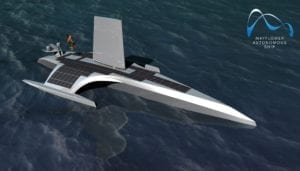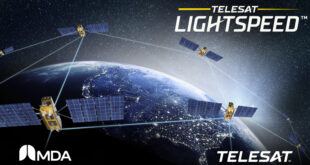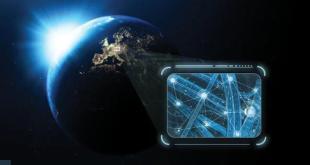
exactEarth Ltd., a leading provider of Satellite AIS data services, announced on 12 May 2020 that it has joined an international effort to build an unmanned, fully autonomous transatlantic research vessel that is set to launch on the fourth centenary of the original Mayflower voyage. exactEarth joins an illustrious international project team led by ProMare and its technology partner, IBM.
The Mayflower Autonomous Ship (MAS) mission will not only commemorate the original Mayflower crossing, but also advance technologies that could transform the shipping industry and help gather critical data about the ocean.
exactEarth will contribute two of its services to the MAS project:
- exactAIS: the supply of live satellite AIS data into the mission’s operations centre, where this data will augment the local AIS picture collected by the ship’s onboard AIS transceiver by providing a real-time over-the horizon view throughout the voyage.
- exactSeNS: the use of exactEarth’s VHF-based M2M satellite communications service to upload sensor data in real-time from the ship’s on-board weather station, via an exactEarth-supplied on-board transmitter.
The exactAIS data service provides flexible access to all the AIS messages captured by exactView™ RT, the Company’s second-generation satellite constellation. exactView RT consists of 58 operational payloads and seven orbital spares that were designed and built by L3Harris Corporation and that are hosted onboard the Iridium NEXT constellation of satellites, which is owned and operated by Iridium Communications Inc. exactView RT tracks a population of more than 500,000 unique vessels worldwide and generates Average Global Revisit rates and Average Latency rates of less than one minute.
exactSeNS uses ‘Application Specific Messages’ (ASM) maritime VHF frequencies and exactEarth’s AIS satellite payloads to provide a real-time global mobile satcom service that can collect data from sensors on a range of maritime assets, including ships, buoys, autonomous and environmental platforms and navigational aids. ASM is part of the evolution of the ‘Automatic Identification System’ (AIS) standard into the ‘VHF Data Exchange System’ (VDES).
“We are pleased to be a part of a prestigious group that is collaborating on ways to leverage advances in technology to enhance both the future of global shipping as well as our environmental relationship with the world’s oceans,” said Peter Dorcas, Vice President, Business Development at exactEarth. “This is a unique opportunity for us to trial exactSeNS as part of an initiative that, if successful, could lead to the greater adoption of autonomous shipping as well as demonstrating how the service could create new opportunities for exactEarth in the broader maritime information market.”
 SpaceWatch.Global An independent perspective on space
SpaceWatch.Global An independent perspective on space




